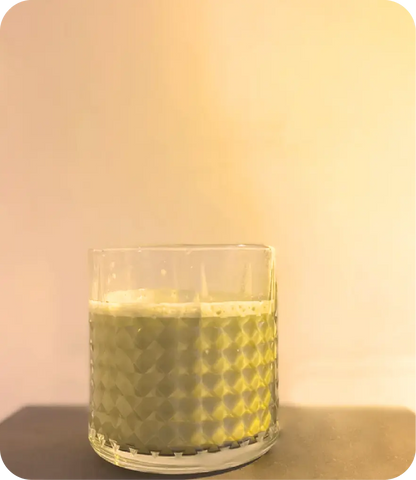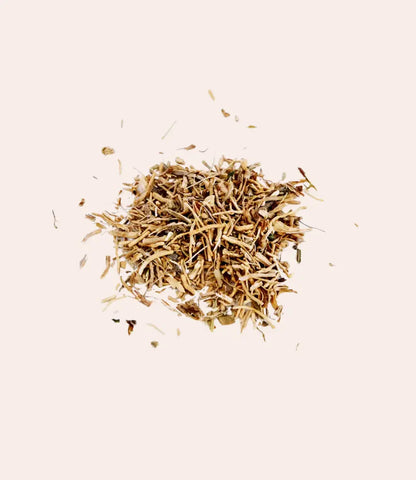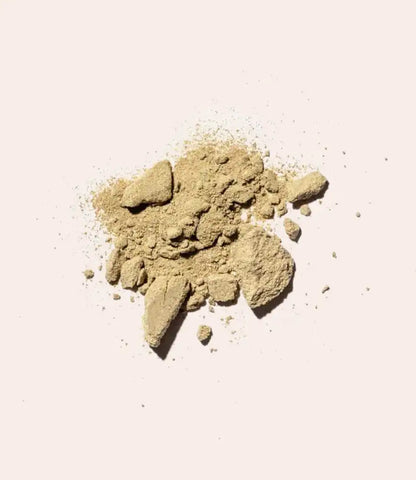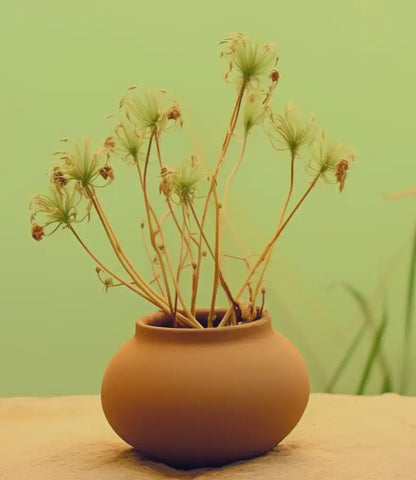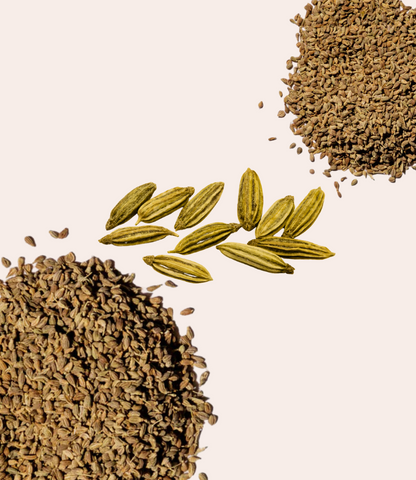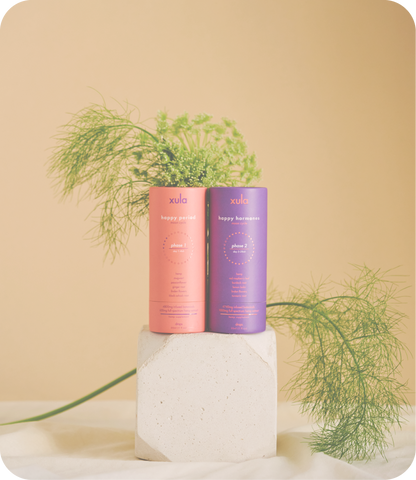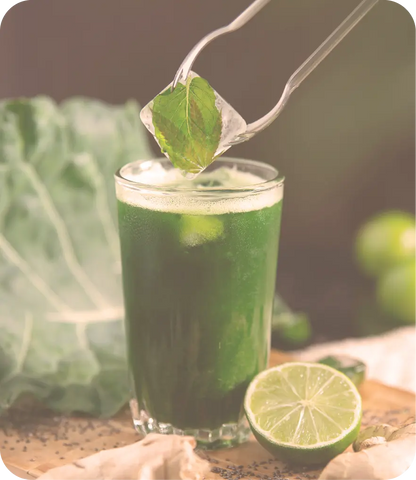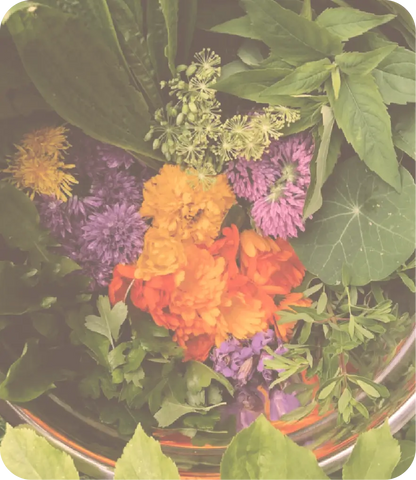
Shatavari Root: The Almighty Root of Wellness
Shatavari, a member of the asparagus family, boasts a storied history that spans centuries.
In Sanskrit, its name translates to "one who possesses a hundred husbands," a nod to its historical use as a tonic to promote sexual vitality and nourishment in women. Throughout the ages, this unassuming root has been celebrated for its versatile applications, believed to address a spectrum of female health concerns.
As we journey into the world of shatavari root, we'll unravel its botanical identity and explore the traditional wisdom that has surrounded it.
Moreover, we'll delve into the field of modern scientific research, uncovering the potential benefits that have sparked renewed interest in this age-old remedy. From its role in hormonal balance to its contributions to reproductive health and menopausal support, shatavari root holds a trove of possibilities that intersect with the complexities of women's wellness.
In this comprehensive exploration, we will navigate the profuse landscapes of tradition and scientific inquiry, shedding light on shatavari root's potential to empower women on their path to holistic health. Whether you're seeking insights into centuries-old practices or looking to embrace natural options for contemporary well-being, the Shatavari root promises a fascinating journey of discovery.
What is Shatavari Root?
Nestled within the arid landscapes of India and certain parts of Asia, the shatavari root, scientifically known as Asparagus Racemosus, stands as a testament to nature's remarkable diversity and healing potential. This unassuming perennial climbing plant belongs to the Asparagaceae family and is characterized by its delicate fern-like leaves and clusters of small, fragrant white flowers.
At the heart of shatavari's allure lie its bioactive compounds, which include steroidal saponins, flavonoids, and essential nutrients. These constituents are believed to contribute to the herb's myriad health benefits.
Recognized as an adaptogen, shatavari root is thought to assist the body in adapting to stressors and restoring equilibrium. Its adaptogenic nature has led to its historical use as a rejuvenating tonic with a particular affinity for female health.
Traditional Uses
For centuries, its versatile and holistic properties have made it an indispensable ingredient in the treasure trove of remedies in Ayurveda, the ancient healing system of India.
Balancing the Female Body: Central to shatavari root’s reputation is its ability to support hormonal balance in the female reproductive system. Ayurvedic practitioners have long recognized its potential to regulate the menstrual cycle, alleviate menstrual discomfort, and maintain overall reproductive well-being. It is often considered a “rasayana” - a rejuvenating tonic that promotes vitality and longevity. Traditional texts describe shatavari as a cooling and soothing herb, ideal for pacifying conditions arising from excess heat or inflammation in the body.
Nurturing the Reproductive System and Sexual Wellness: Shatavari root is frequently associated with nurturing and fortifying the female reproductive system. Its name, “one who possesses a hundred husbands,” hints at its historical use as a tonic to enhance female libido, fertility and support conception. Ayurvedic wisdom suggests that shatavari can nourish the female reproductive tissues (known as “shukra dhatu”) and encourage healthy ovulation. It is believed to provide strength to the uterus and helps enhance vaginal lubrication.
Pregnancy and Postpartum Support: In Ayurvedic practices, Shatavari is often recommended during pregnancy to promote healthy lactation, aid in the development of the fetus, and ease the transition into motherhood. Its nourishing qualities are thought to benefit both mother and child, providing essential nutrients for optimal growth and development. Additionally, Shatavari is valued for its potential to help balance postpartum hormones and assist new mothers in regaining strength and vitality.
Menopausal Comfort: As women approach menopause, the hormonal shifts can bring about a range of challenges. Shatavari root steps in as a potential natural remedy to ease the transition. Its adaptogenic properties may help alleviate common symptoms such as hot flashes and vaginal dryness. By supporting hormonal equilibrium, Shatavari offers a holistic approach to managing the changes that accompany this life stage.
Holistic Wellness: Beyond its specific applications for reproductive health, shatavari root is celebrated for its potential to foster overall well-being. It is believed to strengthen the immune system, improve digestion, and promote healthy skin. Its adaptogenic nature contributes to its reputation as a tonic for vitality and longevity, making it a valuable addition to any holistic wellness routine.
Shatavari root's traditional uses in Ayurveda reflect a deep understanding of its multifaceted contributions to women's health. From hormonal balance and reproductive support to pregnancy, postpartum care, and menopausal comfort, this remarkable root has been cherished for generations.
A Deeper Dive Into Shatavari’s Support in Hormonal Balance:
In the intricate symphony of the human body, hormones play a pivotal role in orchestrating various physiological processes. Shatavari root, with its historical reputation as a harmonizing tonic, takes center stage in the realm of women's health by aiming to promote hormonal equilibrium.
Shatavari root is classified as a "sattvic" herb, believed to have a calming and nourishing effect on both the body and mind. This aligns with its potential to balance hormones and address conditions arising from hormonal imbalances, such as irregular menstrual cycles, PMS symptoms, and menopausal discomfort.
Adaptogenic Properties: Shatavari root's adaptogenic nature contributes significantly to its impact on hormonal balance. By supporting the endocrine system, shatavari may help regulate the production and secretion of hormones, promoting stability and reducing the likelihood of hormonal fluctuations.
Phytoestrogens and Hormone Receptors: One of the mechanisms through which shatavari root may influence hormonal balance is its interaction with hormone receptors in the body. Shatavari contains compounds known as phytoestrogens, which are plant-derived compounds that can mimic the action of estrogen, a key female hormone. These phytoestrogens may bind to estrogen receptors, potentially modulating hormonal activity and promoting a more balanced hormonal environment.
Clinical Research: While traditional use and anecdotal evidence have long praised shatavari's ability to support hormonal balance, modern scientific research is also shedding light on its potential. A study published in the "Journal of Ethnopharmacology" in 2005 found that shatavari extract exhibited estrogenic activity, suggesting its potential in managing hormonal imbalances in women. Another study published in the "Biomedicine & Pharmacotherapy" in 2018 proposed that shatavari may improve female reproductive health complications including hormonal imbalance, polycystic ovarian syndrome (PCOS), follicular growth and development, oocyte quality and infertility possibly by reducing OS level and increasing antioxidants level in the body found that shatavari had a positive influence on the ovarian and uterine tissues, indicating its potential to support fertility.
A Holistic Approach
Shatavari Root's approach to hormonal balance is holistic, addressing not only physical symptoms but also emotional well-being. Promoting a state of calm and nourishment may contribute to reducing stress-related disruptions in hormone production. This comprehensive approach aligns with Ayurvedic principles, which emphasize the interconnectedness of body, mind, and spirit.
Incorporating shatavari root into one's wellness routine may offer a natural and gentle way to support hormonal balance. Whether through teas, capsules, or powdered formulations, individuals seeking to harmonize their hormones may find solace in the age-old wisdom that shatavari root brings to the realm of women's health. As we journey forward, let's explore the contemporary research that further illuminates the intricate interplay between the shatavari root and the delicate dance of hormones.
Energetics: Warming, Moistening, Toning
Actions: Adaptogen (Helps body adapt to stresses), Demulcent (Soothes and lubricates tissues), Aphrodisiac (Increases libido)
Found in: Moon-a-pause
Sources
Mishra, J., Dash, A. K., & Kumar, S. (2013). Hundred Problems, One Solution Asparagus racemosus. World Journal of Pharmaceutical Research, 3(1), 201-11. https://wjpr.s3.ap-south-1.amazonaws.com/article_issue/1477645177.pdf
Alok, S., Jain, S. K., Verma, A., Kumar, M., Mahor, A., & Sabharwal, M. (2013). Plant profile, phytochemistry and pharmacology of Asparagus racemosus (Shatavari): A review. Asian Pacific journal of tropical disease, 3(3), 242-251. doi: 10.1016/S2222-1808(13)60049-3
(n.d.). What are the health benefits of shatavari? Medical New Today. https://www.medicalnewstoday.com/articles/322043
Pandey AK, Gupta A, Tiwari M, Prasad S, Pandey AN, Yadav PK, Sharma A, Sahu K, Asrafuzzaman S, Vengayil DT, Shrivastav TG, Chaube SK. Impact of stress on female reproductive health disorders: Possible beneficial effects of shatavari (Asparagus racemosus). Biomed Pharmacother. 2018 Jul;103:46-49. doi: 10.1016/j.biopha.2018.04.003. Epub 2018 Apr 7. PMID: 29635127.
Gautam M, Saha S, Bani S, Kaul A, Mishra S, Patil D, Satti NK, Suri KA, Gairola S, Suresh K, Jadhav S, Qazi GN, Patwardhan B. Immunomodulatory activity of Asparagus racemosus on systemic Th1/Th2 immunity: implications for immunoadjuvant potential. J Ethnopharmacol. 2009 Jan 21;121(2):241-7. doi: 10.1016/j.jep.2008.10.028. Epub 2008 Nov 8. PMID: 19038322.











